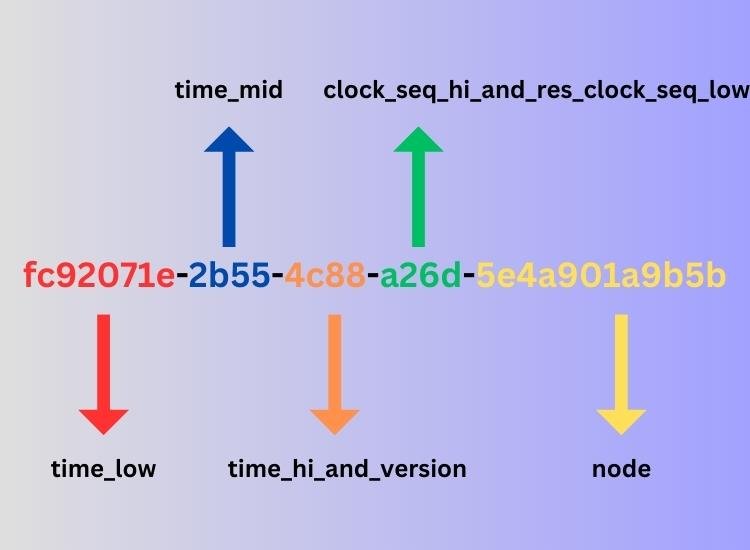In modern software development, unique identifiers play a vital role in various scenarios. One such identifier is the UUID (Universally Unique Identifier). In this blog post, we will explore the usage of UUIDs, their significance, and why you should consider using them in your applications.
Contents
What is a UUID?
A Universally Unique Identifier (UUID) is a 128-bit identifier that is guaranteed to be unique across all devices and systems worldwide. It is represented as a sequence of alphanumeric characters separated by hyphens.
UUIDs follow specific formats, such as the most common variant, UUIDv4, which is generated randomly.
The Importance of Uniqueness
- Globally Unique Identifiers:
UUIDs offer a significantly higher level of uniqueness compared to other identifier schemes.With billions of possible combinations, the probability of collisions is virtually nonexistent.This property is crucial in distributed systems or environments where multiple entities need to generate unique identifiers independently. - Database Integration:
UUIDs are widely used as primary keys in databases. Unlike auto-incrementing integer IDs, UUIDs can be generated offline without needing a centralized authority.This enables better scalability and avoids ID conflicts when merging data from different sources. - Security and Privacy:
UUIDs can be used to generate random session tokens, secure access tokens, or password reset tokens.The randomness and uniqueness of UUIDs make them resistant to guesswork and brute-force attacks, enhancing the security of your application.
Benefits of Using UUIDs
- Distributed Systems:
UUIDs facilitate distributed systems by allowing nodes to generate unique identifiers independently, without the need for coordination or communication with other nodes.This flexibility makes UUIDs ideal for scenarios involving microservices, cloud computing, or synchronization across multiple devices. - Data Merging and Replication:
When integrating data from multiple sources, such as in data replication or data warehousing, UUIDs ensure that records can be uniquely identified and merged correctly.This avoids conflicts and ensures data integrity across different systems. - Privacy and Anonymity:
UUIDs can be used as anonymized identifiers in scenarios where sensitive user information needs to be masked.By replacing personally identifiable information (PII) with UUIDs, you can maintain privacy while still uniquely identifying users or entities.
Implementing UUIDs in Your Application
- Language and Library Support:
Most programming languages provide libraries or built-in functions for generating UUIDs. These libraries simplify the process of creating and working with UUIDs in your application.For example, in JavaScript, you can use the ‘uuid’ library to generate UUIDs. Another example is to use the UUID library for React on React projects. - Generation and Usage:
UUIDs can be generated on-demand or pre-generated and associated with entities during creation.You can use UUIDs as primary keys, session tokens, temporary file names, or any other scenario where uniqueness is required. - Considerations:While UUIDs offer unique identifiers, they are longer and less human-readable than incremental numeric IDs.Depending on your use case, you may need to balance the benefits of uniqueness with the impact on storage space and usability.
Conclusion
UUIDs provide a robust solution for generating unique identifiers in various software development scenarios.
With their high level of uniqueness, compatibility with distributed systems, and enhanced security, UUIDs are a valuable tool for ensuring data integrity, scalability, and privacy.
Consider incorporating UUIDs into your applications to reap the benefits they offer in terms of uniqueness and reliability.






0 Comments